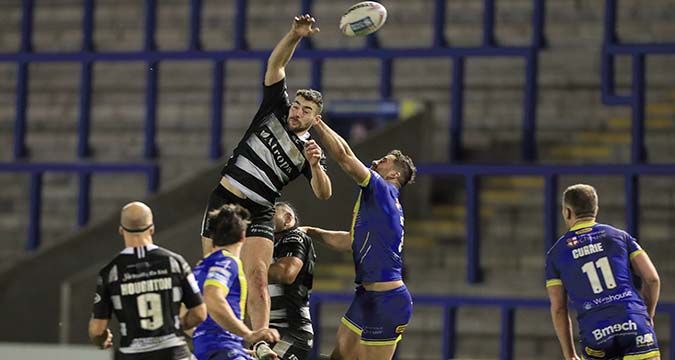
Talking Rugby League with League Express editor Martyn Sadler
The Super League clubs had a vital meeting on Friday.
And, as always, it made some vital decisions for the future of the game and its own competition, but unfortunately, as always again, there was no communication from the organisation about what had actually been decided.
I must admit that I get a little tired of having to try to unearth some details about what has been decided at Super League meetings, whose business seems to be organised rather like a secret society.
I struggle to understand why the clubs and Robert Elstone don’t speak to the media more often.
Nonetheless, it now looks certain that Super League will not have an injection of funds from a private equity investor, even though there is apparently such a company, Novalpina Capital, that is prepared to make such an investment, with possibly as much as £60 million available.
Clearly that would have helped a number of our more hard up clubs in the short term, so it’s hardly surprising that the clubs that border on insolvency were keen to have the cash.
The problem is that in any business, the worst decisions are normally made when a company is desperate for cash. In those circumstances, long term planning goes out of the window.
And I have to say that if you hand over your organisation to a major investor, long term planning becomes impossible.
If Super League had gone with Novalpina, the long term planning would have been done by that company.
But its aim wouldn’t have been to improve the Super League competition, or Rugby League more generally.
Its objective would have been simply to generate a capital gain for itself by selling its stake in five years or so.
In my view that would have been disastrous for Rugby League and I’m delighted that it is now unlikely to happen.
As I’ve written before in this column, there are other sources of finance.
On the one hand, interest rates are at a historically low level, meaning that it’s a good time to be borrowing money, at least on the face of it.
On the other hand, the RFL has already approached the government and has secured two separate loan deals worth £16 million and £12 million respectively.
If the RFL CEO Ralph Rimmer can get back to his contacts in the government, then I’m sure that looks like a much better alternative.
Given that the RFU persuaded the government to give it a low-interest loan of £135 million in November, of which £59 million would go to the clubs in the Rugby Union Premiership, I can’t see why another approach from the RFL couldn’t be tried. And perhaps Ralph is doing that already.
But it looks to me as though the clubs have had a narrow escape from the temptation to sell the game down the river.
The players’ voice
One of the problems for Rugby League in this country, as I’ve written many times before, is the lack of a strong players’ union that can reach binding decisions with both the RFL and Super League.
The players should have a say in such matters as the salary cap and other financial issues that affect their careers.
And they do in Australia.
In Australia their Rugby League Players’ Association has recently agreed that there will be a $9.02 million salary cap this season, which is down from $9.6 million under a previous agreement.
In the UK, we don’t have a players’ union that gets involved in that level of negotiations.
And I find that regrettable.
Players getting fixed up
In last week’s League Express we ran a major feature about players who were out of contract at the end of the 2020 season and were still looking for clubs. You can also read that feature on here on TotalRL.com.
We featured eleven players, all of whom could still do a job in Super League or at the top end of the Championship.
And I’m glad to say that of those eleven, four of them have found new clubs – Olly Ashall-Bott at Huddersfield, Rémi Casty at Toulouse, Junior Moors at Featherstone and Dec Patton at Salford, which we actually reported last week.
It would be foolish of us to suggest that any of those players were able to negotiate new contracts because they featured in League Express. No doubt their negotiations with their new clubs were already taking place.
Nonetheless, it’s great to see that those four will continue to entertain us, and we hope the others who we featured will also be able to find new clubs soon.
Meanwhile in this week’s League Express, you’ll find that we are listing players whose contracts are set to expire at the end of this season and who will be able to talk to new clubs from 1st May.
It will be interesting to see how many of those will have agreed extended deals with their existing clubs before that date.
Yearbook shortage
Unfortunately we at League Publications have now sold out of our supply of the Rugby League Yearbook 2020-21.
We are desperately trying to get hold of additional copies and I would advise anyone who hasn’t managed to lay their hands on one to keep checking the this website. As soon as we get some more copies we will ensure that we make clear that they have become available.
For those who can’t wait for that, there are seemingly no copies available on Amazon, but there are still some copies available from another online bookseller, The Hive.
If you want to check it out, go to www.hive.co.uk
The above content is also available in the regular weekly edition of League Express, on newsstands every Monday in the UK and as a digital download. Click here for more details.
